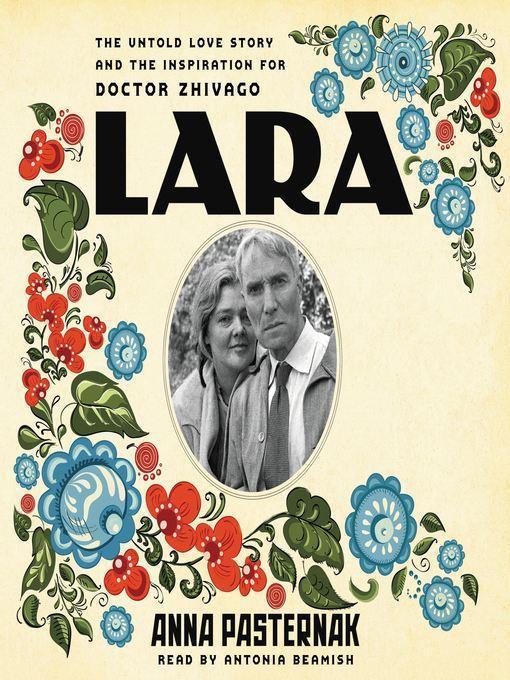
Lara
The Untold Love Story and the Inspiration for Doctor Zhivago
کتاب های مرتبط
- اطلاعات
- نقد و بررسی
- دیدگاه کاربران
نقد و بررسی

Anna Pasternak, grandniece of Nobel Laureate Boris Pasternak, gives a very personal account of her ancestor's talent, fame, and suffering. Those who love Russian literature and history will find this backstory to the beloved DOCTOR ZHIVAGO to be engaging and informative. Narrator Antonia Beamish's British accent and pleasant alto voice move steadily through the story of Boris Pasternak and how his affair with Olga Ivinskaya became the basis for the character of Lara in the novel. Beamish's pace allows one to take in all the information, and we are presented much detail of artistic life in Russia before the revolution and during the Soviet era. Beamish is not overly expressive, but she keeps listeners engaged. M.T.F. � AudioFile 2017, Portland, Maine

September 5, 2016
This accessible history sketches the stories of a literary love affair and a great novel whose cultural and political impact may now seem almost unimaginable to a modern audience. Boris Pasternak’s Doctor Zhivago, an epic of revolutionary Russia and the passion that burned between its eponymous protagonist and his beloved Lara Guichard, had a history nearly as tumultuous as its story line. As described by Anna Pasternak (Daisy Dooley Does Divorce), an English journalist and great-niece of the late author, twice-married Boris’s 13-year liaison with editor Olga Ivinskaya was passionate and consuming, and likely the reason he could complete his great work—Ivinskaya provided him both inspiration and practical assistance. Much of this history recounts Boris’s hounding by Soviet authorities, who objected to his unflattering portrayal of the revolution, blocked his book’s publication in Russia, and forced him to decline the Nobel Prize for Literature in 1958. For Ivinskaya’s part, she was harassed by the KGB, suffered two miscarriages, and twice was sentenced to labor camps, first to pressure Boris to abandon Zhivago and then to punish her for his defiance. Boris emerges here as self-absorbed, vain, reckless, and also brave enough to get his opus published. Pasternak doesn’t always convey the larger historical context, but nonetheless this is a sensitive and fairly careful account of one of literature’s great backstories.

























دیدگاه کاربران